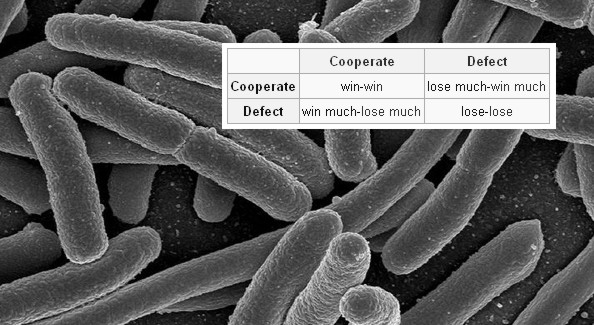This might be useful as a game design paradigm:

Scientists studying how bacteria under stress collectively weigh and initiate different survival strategies say they have gained new insights into how humans make strategic decisions that affect their health, wealth and the fate of others in society. The authors of the new study are theoretical physicists and chemists at the University of California, San Diego’s Center for Theoretical Biological Physics. In nature, bacteria live in large colonies whose numbers may reach up to 100 times the number of people on earth. Many bacteria respond to extreme stress — such as starvation, poisoning and irradiation — by creating spores. Alternately the bacteria may ‘choose’ to enter a state called competence where they are able to absorb the nutrients from their newly deceased comrades. ‘Each bacterium in the colony communicates via chemical messages and performs a sophisticated decision making process using a specialized network of genes and proteins. Modeling this complex interplay of genes and proteins by the bacteria enabled the scientists to assess the pros and cons of different choices in game theory. It pays for the individual cell to take the risk and escape into competence only if it notices that the majority of the cells decide to sporulate,’ explained Onuchic. ‘But if this is the case, it should not take this chance because most of the other cells might reach the same conclusion and escape from sporulation.’
– Slashdot
See also: